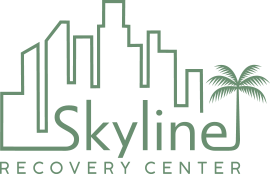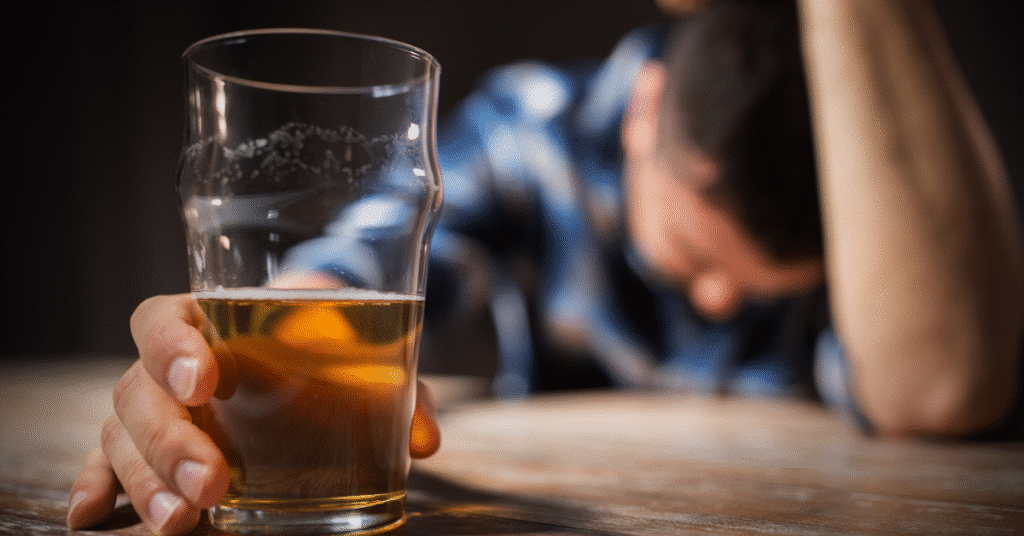When you think about alcoholism and the serious health complications it leads to, what comes to your mind? Just the sheer amount of damage the body has suffered, including to the vital organs such as the liver, heart, and brain. But alcoholism does not always have to end up this way – it happens in stages, and when you learn to recognize the warning signs early, you can prevent the condition from deteriorating.
In this article, we will delve into the stages of alcoholism and learn to recognize in which stage of alcoholism does the drinker face serious health problems. Whether it is in you or your loved one, knowing the signs of progressively worsening alcohol use is the first step to avoiding life-threatening consequences.
When Does Alcohol Stop Just Being Fun? – The First Warning Signs
Alcoholism or alcohol use disorder (AUD) is characterized by an inability to control drinking. It does not always start off as heavy, chronic use right away – it begins rather innocently, at social gatherings, weekend drinking, or just the one glass after a long, winding day.
But even in these initial stages, you can recognize the first warning signs. Here, you need to know about the first stage of alcoholism.
I – Pre-Alcoholic Stage
Why do you drink, basically? Do you drink to feel better, to forget, or to numb the pain and suffering? If you recognize these psychological patterns underlying your drinking behavior, they can easily escalate if you do not seek professional help right away.
While there is minimal damage during this stage, it is an indicator of long-term alcohol use. Think of it as being on the edge of the cliff – you have not fallen off yet, but you do need to act quickly.
When Your Alcoholism Begins to Hurt You
When your alcoholism begins to interfere with your day-to-day functioning, family and friendships, and life in general – alcoholism begins to hurt you. We will be getting into the next two stages of alcoholism, where your alcoholism begins to show itself for what it is.
II – Early Alcoholic Stage
Heavy drinking and frequent blackouts, along with concealing your drinking patterns, are the warning signs you need to know. Seeking professional help during this stage can reverse the damage alcoholism is doing to your mind and body, even if you are not aware of it yet.
III – Middle Alcoholic Stage
At this point, your loved ones can see your struggles with alcohol. You begin to forget things, miss your school or work, experience mood shifts, and there are other noticeable physical signs of alcohol use, like weight gain/loss, stomach bloating, and facial redness. Outpatient rehab options like intensive outpatient programs (IOPs) or standard outpatient treatment can be crucial in reversing that damage at this stage.
Your Body Says ‘Enough’ – Dependence and What It Costs You
Alcoholism is not just simply drinking to feel good – it changes your brain chemistry and functioning in a way that it gets used to the presence of alcohol. At this point, your mind and body feel like they need alcohol to function properly – to feel normal. This is known as dependence, which is something you notice in the middle alcoholic stage. Some of the signs you notice during this stage are:
- When you skip drinks, you experience alcohol withdrawal signs and symptoms. For instance, you experience intense cravings, mood swings, anxiety, sweating, vomiting, diarrhea, and even something as severe as delirium tremens, which is characterized by confusion, psychosis, and seizures.
- Your tolerance for alcohol also skyrockets. This means you will need more and more alcohol to experience the desired effect. Tolerance is one of the primary reasons for heavy drinking.
This stage is also when serious health complications begin – fatty liver, early-stage liver disease, irregular heart rhythm, digestive problems, and significant mental health conditions.
End-Stage Alcoholism – This Is When the Real Damage Hits
The fourth stage of alcoholism is known as end-stage alcoholism. It is characterized by excessive exposure to alcohol, which is when alcoholism causes severe health complications, damages relationships, and even livelihood.
By this stage, the brain and body have suffered extensive damage due to alcoholism, and you can experience the following:
- Liver damage, which can result in fatty liver, hepatitis, and cirrhosis (inflammation and scarring of the liver).
- A weakened immune system, which means falling sick more often than usual.
- Gastrointestinal issues, like stomach ulcers, bleeding, and pancreatitis.
- Cardiovascular conditions, like high blood pressure, arrhythmia, cardiomyopathy, and other heart conditions.
- Changes in the brain, which lead to confusion, memory loss, and Wernicke-Korsakoff syndrome (a neurological condition characterized by Vitamin B deficiency).
- Mental health conditions, which include anxiety, depression, and suicidal ideation.
But, Wait – Can You Recover?
If your question is in which stage of alcoholism does the drinker face serious health problems, then it is during the end-stage alcoholism. But the question or the journey does not end here – there is a life free from the grip of alcohol beyond this. It is known as the recovery stage – the fifth and final stage of alcoholism.
Alcoholism can begin innocently, but before long, it can spiral into abuse and dependence. While many can be in denial of their alcoholism for a long time, there comes a point where they move toward recovery. It begins with a simple decision – to stop drinking alcohol.
Whenever you arrive at this decision, know that there are a number of best alcohol addiction treatment options available for you. Depending on the severity of your symptoms, you might be referred to outpatient rehab options like partial hospitalization programs (PHPs) or inpatient options where you receive 24*7 medical supervision.
Medical Detox – Detox is the first step to recovery, where alcohol is gradually tapered off from your body to minimize and manage cravings and withdrawal symptoms.
Psychotherapy – While detox reduces cravings and withdrawal symptoms, psychotherapeutic interventions like motivational interviewing, cognitive behavioral therapy, contingency management, and 12-step recovery models are used to uncover and change the underlying patterns leading to alcohol use.
Medication Management – Medicines like disulfiram and naloxone are prescribed to discourage drinking and reduce relapse.
Aftercare – Once you achieve recovery, the challenge is to maintain it. So, you are provided with ongoing care and support with counseling, medicines, relapse prevention plans, sober living, and 12-Step meetings like Alcoholics Anonymous.
How to Keep Drinking from Really Hurting You?
While alcohol use disorder requires detox and rehab, prevention is always better than cure. You can keep alcohol from hurting you from the start by following these tips:
- Track your drinking. This awareness is the first step in preventing heavy alcohol use. Drink only with safe and trusted persons who can also keep a check on your drinks.
- Take regular alcohol-free days every week.
- If you notice symptoms such as mood swings, fatigue, or digestive concerns, get a medical checkup right away.
- Seek help early – early intervention is easier to reverse damage before it becomes permanent.
Your Recovery Is Just a Call Away
Alcoholism does not have to be an isolating journey – Skyline Recovery offers evidence-based care with a personalized approach tailored to your recovery needs and goals. We meet you where you are in recovery – whether it is during the early-stage or late-stage alcoholism. We are a leading outpatient rehab center in Los Angeles, and we offer PHPs, IOPs, and outpatient care so that you can live a life free from the grip of all substances.
It is never too early or too late to begin your recovery – please do not hesitate to call us at (310) 269-0038 today.


